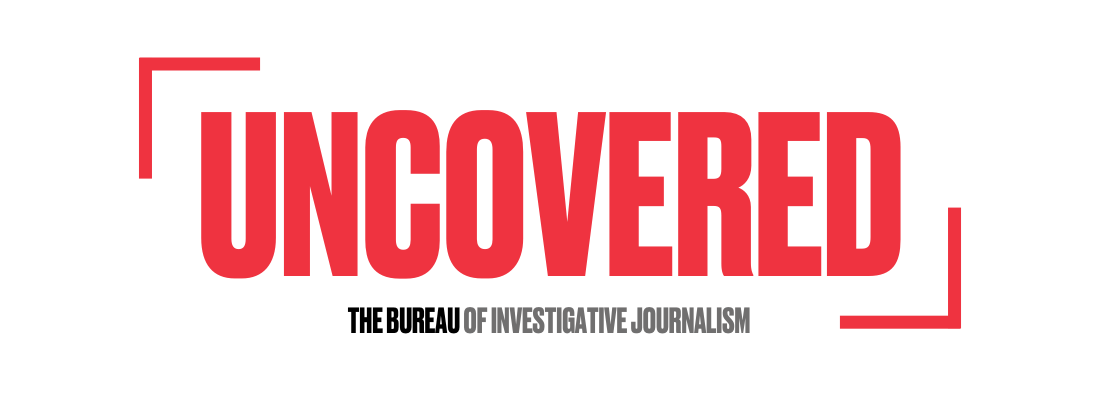
“Sanctions often have to be severe and open-ended if they are to be effective.”
Hi {{ First name | there }},
Before you scroll down to the main feature this week, I’d like to invite you to take part in TBIJ’s annual audience survey.
Why? Well, it helps us to learn more about you, and ensures our journalism can serve you better. We’re interested in what you value about our work, and what you’d like to see more of.
It’ll take you less than five minutes – click the button below to get involved.
Now onto some personal news, as the LinkedIn corporate climbers say – I’ve been appointed Editor-in-Chief and CEO of the Bureau, replacing the formidable Rozina Breen as she heads to the Pulitzer Center.
I summed up my thoughts on LinkedIn earlier this week:
“The Bureau is a pretty special place. It came out of nowhere to bring us some of the most powerful investigations around. Five years ago, I left a good job at Bloomberg to join the gang, after seeing stories like the one tracking US drone strikes on civilians in Afghanistan and Iraq. In terms of scale and purpose, it didn't get much better.
The headwinds for media organisations are strong. But Rozina started us on a new path three years ago, to not only do excellent journalism, but to also make us more financially resilient. That’s the path we’re on.

I’m convinced there’s a huge demand for an organisation like ours which can deliver what people need. People want to understand how to resist the rise of kleptocracy and corruption, how to protect themselves from the strangulation of the tech empires, how to not just give up on the planet, and how to even society out. Our stories have exposed the politicians, businesspeople, governments, multinationals, etc, exploiting us, lying to us, and stealing from us. And we've equipped people with the information to act.
The Bureau has some of the most dogged, creative and talented journalists about. So I’m pretty stoked to step into the role and help the team continue to publish the best reporting and grow its audience. That will catapult us into the future.
The challenge is pretty crazy. AI is eating into our traffic and nicking our work. The internet is awash with mis- and disinformation. More and more people understandably distrust what they see.
But we can still build our following though by giving humans what they want, which is real human stories. We can find scoops, make people laugh and cry, surprise them, all these things the bots can’t do.”
I’m taking a short break for the summer right now, but rest assured there is an incredible team here at the helm, and we’re devising some very exciting plans for the future of the Bureau. If you’re not already one of our Bureau Insiders, then I hope you will consider becoming one, and stand alongside us as we propel into the next chapter of TBIJ. There is so much urgent work to be done – journalism that has a real, positive impact on the world – and we can’t do it without you.
The scam of the summer
Like all good leaders, Franz knows how to delegate, and he’s handed the rest of this week’s Uncovered to me – Chrissie, one of the Bureau’s deputy editors.
At the end of June we revealed a mind-boggling scam involving QR codes on car park signs in the UK. Working with reporters from across Europe, we showed that this scam is actually part of a much larger international fraud network, all centred around a business in Dubai.
Franz talked about our “dogged, creative and talented” journalists above, and Simon Lock is a great example. Not only does he brew the strongest coffee going, but he’s incredibly adept at sniffing out the patterns from oceans of data.
He’s just published this behind-the-scenes look at the car park scam, taking us step by step through how he worked out – and could prove – that there was a full network of scam sites, rather than just one or two. All these websites had one “master merchant” in common, a company called Linkmedia.
To do this, he delved into a world of “Domain Name System (DNS) nameservers, registrars, mail servers and website coding”. And if this sounds a bit overwhelming, then never fear: Simon runs through what each of these are and their significance, using our own site as an example.
In short, Simon gives a masterclass in how an anecdote led to TBIJ exposing a fraud network of nearly 3,000 sites that we calculated had handled almost £50m in a single year.
There are a whole shedful of tools at investigative journalists’ disposal. And so many of them are available to any of us with an internet connection and a determination to get to the bottom of a mystery.
Factchecked!
Each week we reveal a fascinating fact from our reporting…
Did you know?
When it comes to drug manufacturing, disinfection is crucial: even a technician moving too quickly in a clean room can create air movement that spreads bacteria.
Find out more
Ensuring that cancer drugs are sterile is the ultimate responsibility of the manufacturers. Every action must be tightly controlled because staff working without proper disinfection processes can carry contaminants.
Everything is sanitised right down to the pens and paper.
UK sanctions survive oligarch’s appeal
The UK’s sanctions regime – probably the government’s most important economic tool for punishing Russia in the wake of the invasion of Ukraine – survived a major challenge this week from someone who may sound familiar to you.
Eugene Shvidler has featured in two major stories TBIJ has done as part of our years-long investigation into the financial affairs of one Roman Abramovich.
The pair were close; there are plenty of pictures of Shvidler enjoying hospitality in Abramovich’s box at Chelsea games, back when Abramovich quite literally called the shots at the club. When Russia invaded Ukraine, the UK government cracked down on first Abramovich, and then Shvidler as a close associate. Shvidler tried to claim he’d never benefited financially from his friendship.
However, Simon Lock – yep, him again – turned up more than $600m in loans from Abramovich to Shvidler. And of that, $545m seemed to have just been handed to the Shvidler family, with no real way of the debt being repaid.
And earlier this year, when Simon dug into a complex hedge fund structure in the British Virgin Islands that held billions of dollars for Abramovich, Shvidler turned up again. He’d been given the power to make vital decisions for one of the key companies involved – and that meant that the structure should have been taxed in the UK, because that’s where Shvidler lives.
This week, Shvidler took his appeal against his inclusion on the UK sanctions list to the Supreme Court – and lost.
Shvidler called the judgment “cheap virtue-signalling for purely political purposes” and was keen to point out one judge agreed with him; Lord Leggatt called it Orwellian. But the rest of the panel found that the government had not acted unlawfully or disproportionately.
What we’ve been reading
🔴 This investigation goes inside the secret Russian paramilitary training camps that tried to destabalise Moldova balkaninsight.com
🔴 Employees trying to unionise at the bakery chain Gail’s have accused management of using CCTV to spy on them novaramedia.com
🔴 Two in every five people arrested during the riots last summer had been previously reported for domestic abuse theguardian.com




